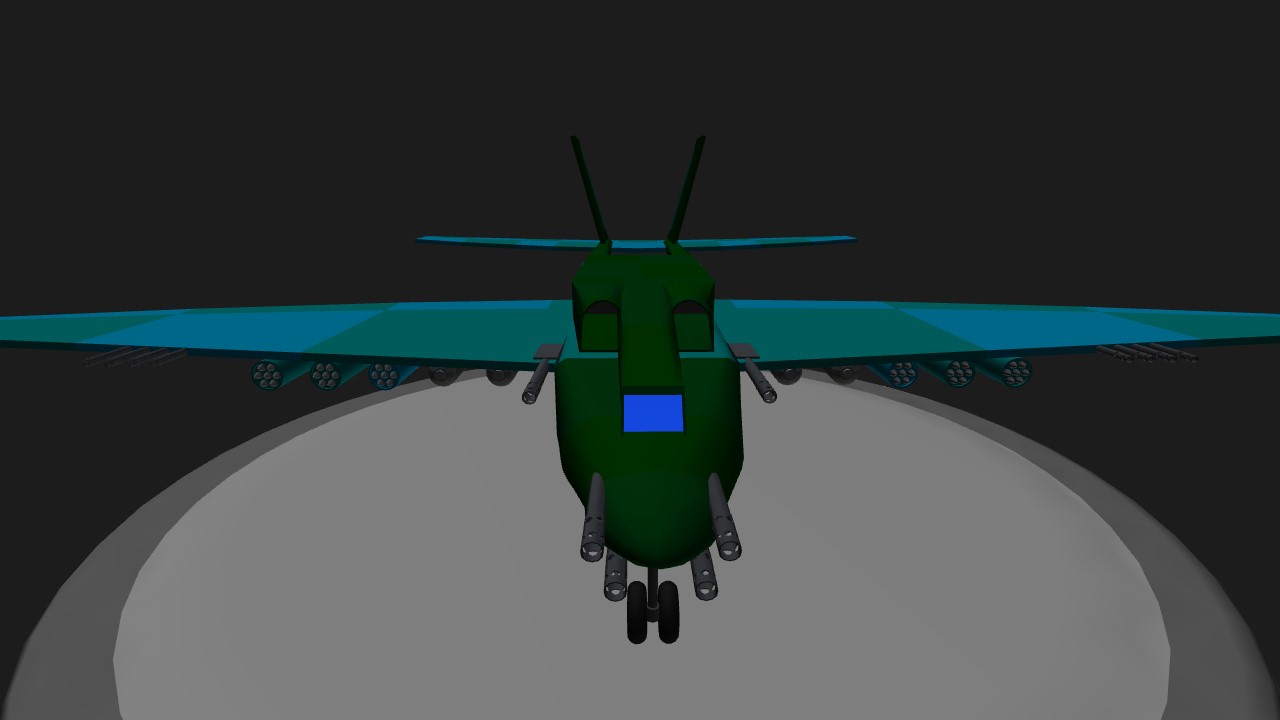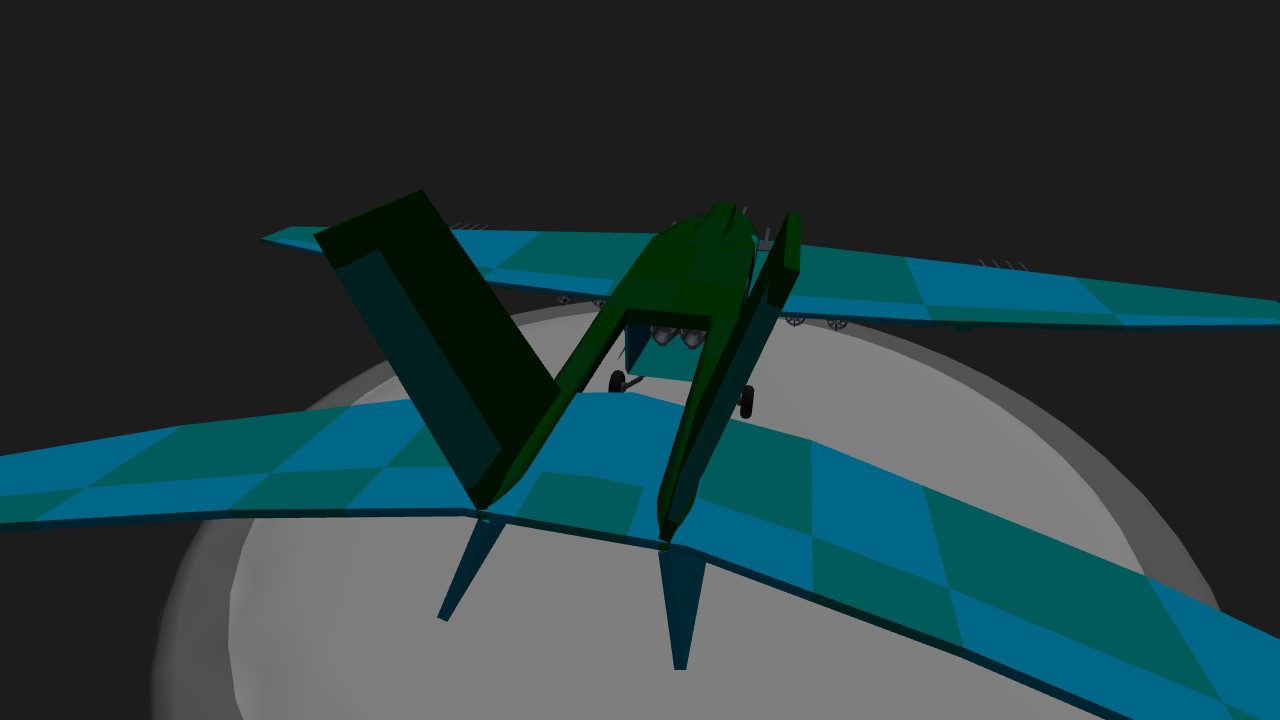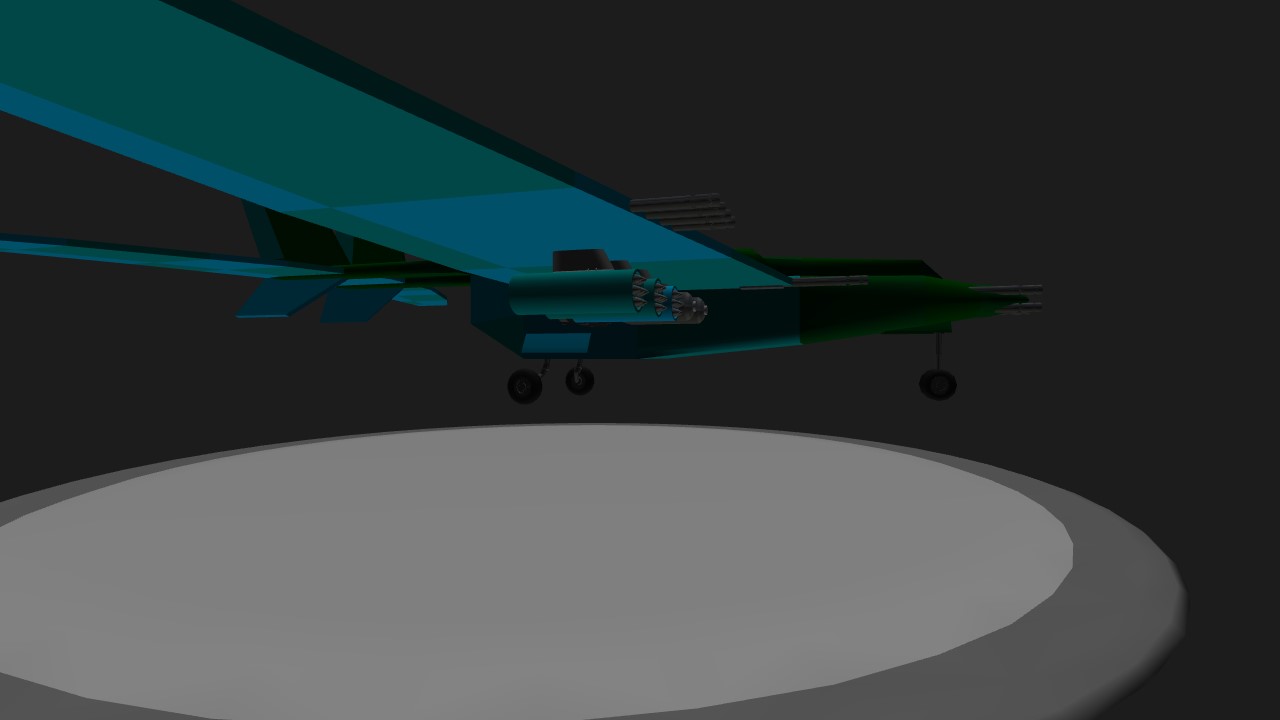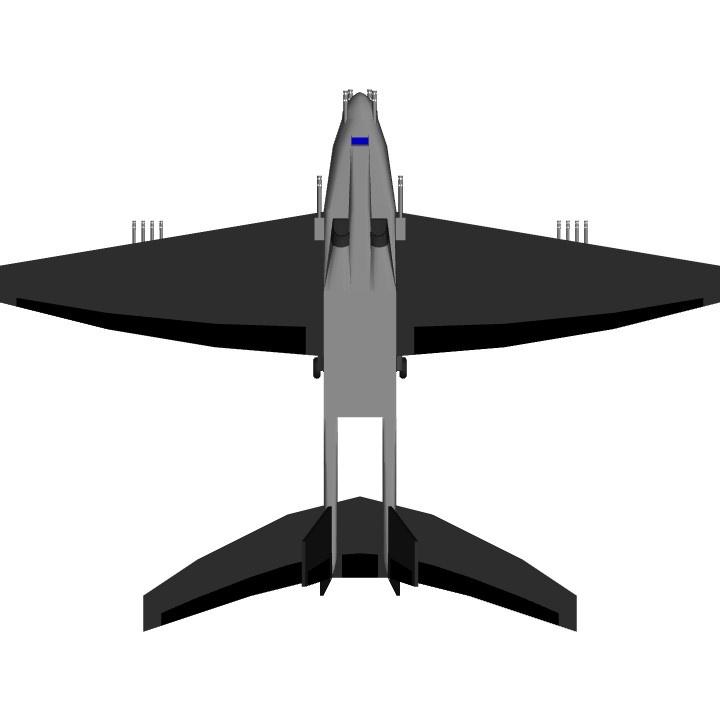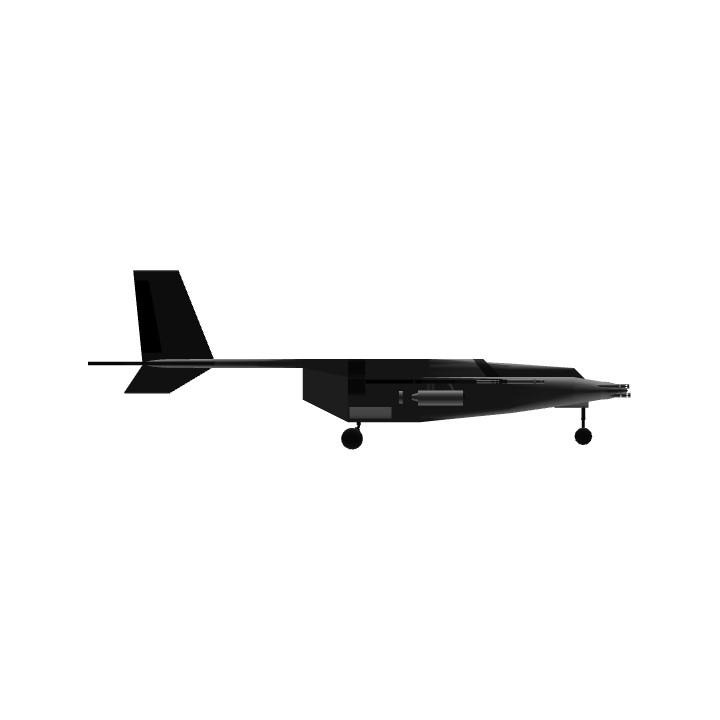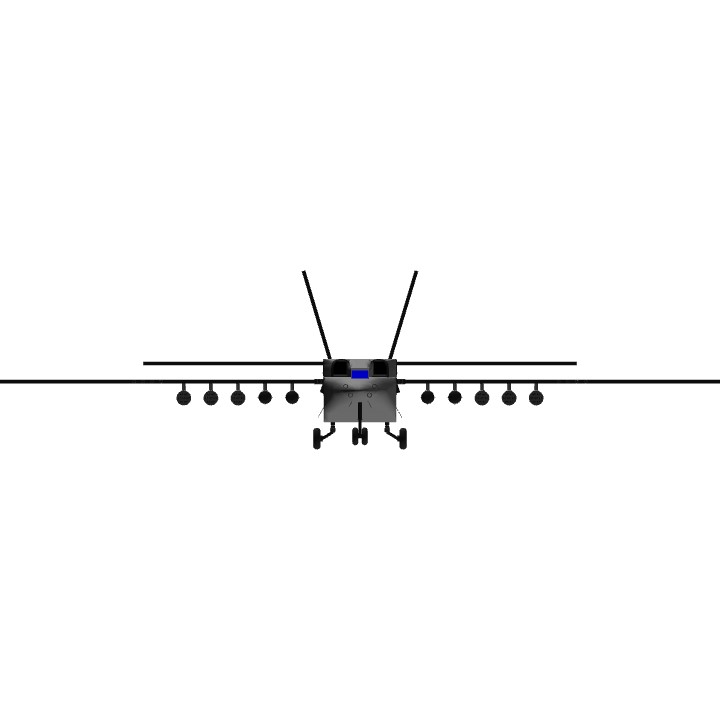My jet entry for the 1940s challenge.
Group 1: Large-caliber anti-vehicle cannon
Group 2: Anti-infantry machine guns
VTOL slider: Air brakes
The experience of World War II had shown that ground attack aircraft could play a useful tactical role on the battlefield. The advent of the jet engine raised the intriguing possibility of protecting the engines inside the armoured body of the plane, giving them more protection than the exposed propeller engines that had previously been used. The Bulldog was designed around this principle, with two powerful J50 engines that were well protected from enemy fire. It was still recognised that reducing the amount of incoming fire would be a good idea, so the Bulldog was designed to be both stable and agile, allowing low-level approaches to be made under the radar coverage of the enemy. When contact is made with the enemy, the wing-mounted machine guns can be used to shred infantry and unhardened vehicles, with the large-calibre cannon, high-explosive rockets and bombs able to deal with any harder targets.
Air brakes are provided to allow the Bulldog to make dive-bombing attacks. They also make it into an effective STOL plane, able to take off and land from both short dirt strips (e.g. Bandit airport) and the Beast-class aircraft carrier.
Specifications
General Characteristics
- Predecessor 1940s AIRCRAFT CHALLENGE [CLOSED, WINNERS ANNOUNCED ON FORUM]
- Created On Windows
- Wingspan 65.4ft (19.9m)
- Length 49.1ft (15.0m)
- Height 15.9ft (4.9m)
- Empty Weight 12,887lbs (5,845kg)
- Loaded Weight 17,650lbs (8,006kg)
Performance
- Power/Weight Ratio 1.273
- Wing Loading 20.6lbs/ft2 (100.5kg/m2)
- Wing Area 857.6ft2 (79.7m2)
- Drag Points 2973
Parts
- Number of Parts 93
- Control Surfaces 18
- Performance Cost 639

